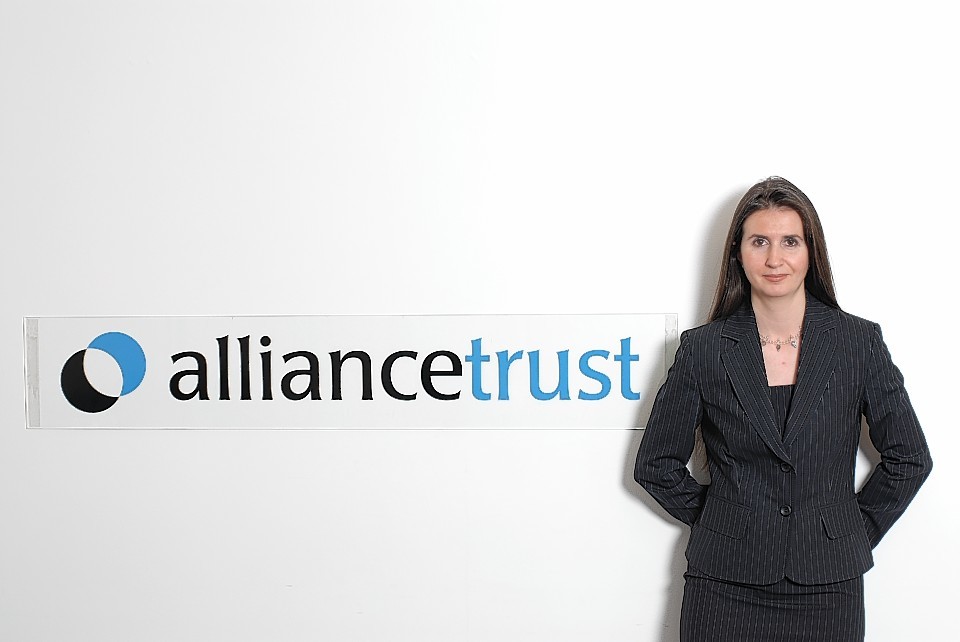Dundee’s Alliance Trust has warned it will be “ready to act” if wrangles over the shape of Scotland’s constitutional future causes “uncertainty” for businesses.
In a call reminiscent of those made by the Royal Bank of Scotland and Standard Life in the run up to the referendum vote last year, Alliance Trust chief executive Katherine Garrett-Cox said the “debate over the extent of future devolution” meant that the firm was “ready to act as necessary to protect our shareholders and customers interests”.
But while RBS rescinded threats to relocate its headquarters to England and claiming it was “business as usual” after the referendum returned “no” vote, Ms Garrett-Cox signaled concern that any proposals for further devolution – as called for by the SNP – risks causing an “extended period of uncertainty” that would hit businesses and the economy.
In her review of the year, Ms Garrett-Cox admitted last year’s referendum had “affected” the Dundee firm.
“This was an unsettling period for many of our shareholders and customers, particularly those in other parts of the UK, and inevitably we, along with other Scottish-based companies, were affected,” she wrote.
“While the debate over the extent of future devolution continues, we would urge all participants to recognise that an extended period of uncertainty is not in the interests either of business or the economy as a whole and we remain ready to act as necessary to protect our shareholders and customers interests.”
Yesterday the firm said that a significant second half bounce back had helped itto a positive full-year result.
The Dundee-based generalist investment trust said trading in the latter part of 2014 had been in complete contrast to the “disappointing” first half of the year when net asset value (NAV) total returns were 0.3%.
An improved second half performance saw total NAV return of 7.8% for the period, giving a total return of 8.1% for the year to December 31.
The Trust yesterday declared a total dividend of 12.38 pence per share for the year – a figure that includes a special payment of 2.546p – a move that extended its record of consecutive annual dividend growth into a 48th year.
The Trust also noted the year end share price was the highest it had ever been in the company’s history.
Ms Garrett-Cox said the Trust was in “more robust health” than at any time since the financial crash of 2008 and said she was “pleased” with the returns delivered in 2014.
Total shareholder return for the year was median or above relative to peer investment houses while dividend growth was in the top quartile.
Management of the Trust’s main equity portfolio was restructured into a single team and a total of 19 stocks were sold off during the year, including oil price exposed holdings like Oceaneering and Seadrill. Eight new stocks were added to the portfolio.
Ms Garrett-Cox said the Trust was now pushing towards delivery of its Vision 2020 corporate strategy with the development during 2014 of a new Investing for Generations plan.
She said the purpose was to map out a way of growing the business responsibly.
“We believe that Alliance Trust should be managed in a sustainable way as this is the best way to deliver returns for our shareholders over the long-term,” Ms Garrett-Cox said.
The Trust’s two main subsidiaries – the specialist fund manager Alliance Trust Investments (ATI) and Alliance Trust Savings (ATS) – both made progress during the year.
ATI increased its third party assets under management to £1.9 billion during the year and revenues rose by £0.9m to £10.1m .
Overall, the business reduced its losses to £3.2m from a figure of £4.2m the previous year.
The ATS business saw total assets under management increase by 19% to £6.4bn – a rise that outstripped the market average of 13% in the period – and revenues climbed by £1.9m to £12.8m.
The unit posted a total loss before tax of £3.3m for the year but the bottom line figure included £2.6m of non-recurring costs related to marketing spend arising from the retail distribution review and a £900,000 impairment relating to the retention of its banking licence.
Stripping those charges out, ATS made an operating profit for the year of £200,000.
